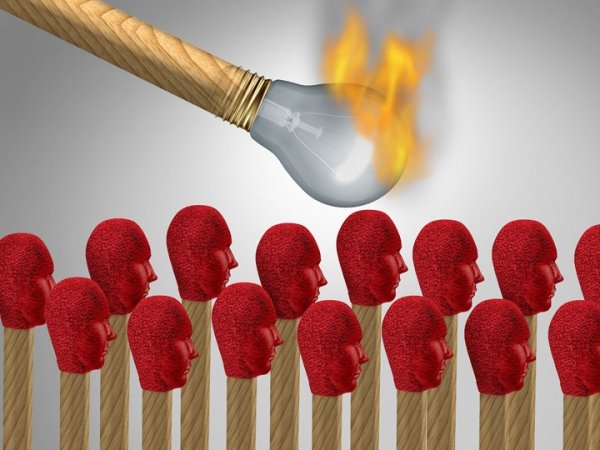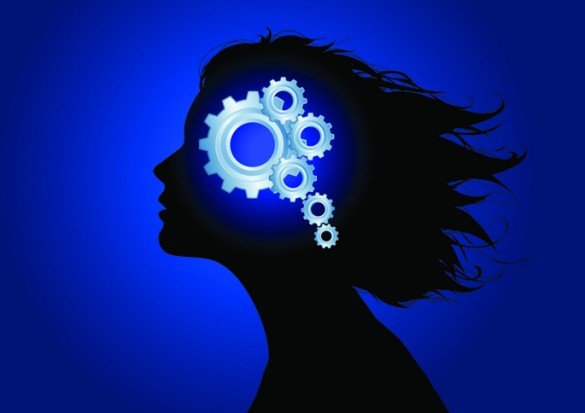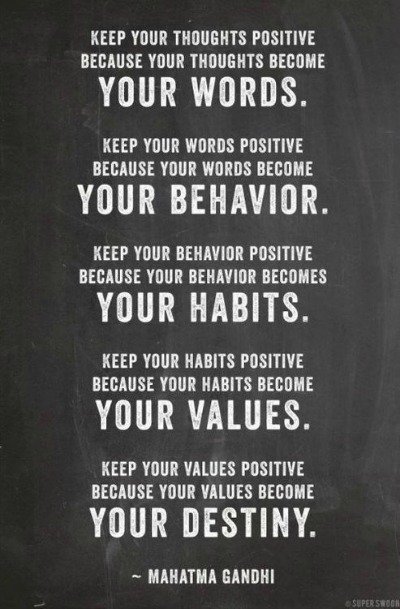What Is Affect, Behavior, and Cognition and How Does It Work?
What Is Affect, Behavior, and Cognition and How Does It Work?

Image Source
Social psychology depends on the ABCs of affect, behavior, and cognition. To adequately keep up and upgrade our own lives through fruitful cooperation with others, we depend on these three fundamental and interrelated human limits:
Affect
Behavior
Cognition
You can see that these three angles specifically mirror the thought in our meaning of social psychology, the investigation of the sentiments, behaviors, and considerations of people in the social circumstance. In spite of the fact that we will every now and again talk about each of the limits independently, remember that every one of the three cooperate to create human experience. Presently how about we consider independently the parts of cognition, affect, and behavior.
Affect
Affect alludes to the emotions we encounter as a feature of our regular daily existences. As our day advances, we may end up feeling upbeat or dismal, envious or appreciative, glad or humiliated. Despite the fact that affect can be destructive in the event that it is unregulated or unchecked, our affective encounters typically help us to work proficiently and in a way that builds our odds of survival. Affect signals us that things are going fine or that things are not going so well.
Affect can likewise lead us to take part in behaviors that are suitable to our view of a given circumstance. When we are glad, we may search out and socialize with others; when we are irate, we may assault; and when we are frightful, we may flee. We encounter affect as state of mind and feelings. State of mind alludes to the positive or negative emotions that are out of sight of our regular encounters.
More often than not, we are in a generally decent state of mind, and positive temperament has some positive outcomes, it urges us to do what should be done and to benefit as much as possible from the circumstances we are in. Positive affect as a wellspring of human quality. When we are in a decent disposition, our manners of thinking open up, and we will probably approach others.
We are all the more well disposed and accommodating to others when we are in a decent temperament than when we are in an awful state of mind, and we may think all the more inventively. Then again, when we are in a terrible state of mind, we will probably like to stay independent from anyone else instead of cooperate with others, and our innovativeness endures.
Feelings are brief, however regularly extraordinary, mental and physiological feeling states. In examination with inclinations, feelings are shorter lived, more grounded, and more particular types of affect. Feelings are caused by particular occasions, and they are joined by elevated amounts of excitement. While we encounter states of mind in typical, regular circumstances, we encounter feelings just when things are strange or bizarre.
Feelings serve a versatile part in helping us direct our social behaviors. Similarly as we keep running from a snake on the grounds that the snake evokes fear, we may attempt to present appropriate reparations with other individuals when we feel remorseful.

Image Source
Behavior
Since people connect with and impact each other consistently, we have built up the capacity to make these associations continue productively and adequately. We collaborate with other individuals to pick up results that we couldn't get all alone, and we trade products, administrations, and different advantages with other individuals. These behaviors are fundamental for survival in any general public.
The sharing of merchandise, administrations, feelings, and other social results is known as social trade. Social prizes incorporate such advantages as consideration, commend, affection, cherish, and monetary help. Social expenses, then again, incorporate, for example, the disappointments that accumulate when conflicts with others build up, the blame that outcomes in the event that we see that we have acted improperly, and the exertion required in creating and keeping up congruous relational connections.
Envision a first-year understudy at your school or college who is making an effort not to promise an organization. Joining the clique has costs, as far as the duty that must be paid, the need to make companions with each of the other crew individuals and to go to society gatherings, et cetera. Then again, there are the potential advantages of gathering enrollment, including having a gathering of companions with comparable interests and a social system to help discover exercises to partake in.
To decide if to vow, the understudy needs to weigh both the social and the material expenses and advantages before arriving at a conclusion. Individuals for the most part want to amplify their own particular results by endeavoring to pick up however many social rewards as could be allowed and by endeavoring to limit their social expenses. Such behavior is reliable with the objective of securing and upgrading the self. Yet, in spite of the fact that individuals do act as per the objectives of self-concern, these objectives are tempered by other concern: the objectives of regarding, tolerating, and participating with others.
Thus, social trade is by and large reasonable and fair, in any event over the long haul. Envision, for instance, that I approach you to help out for me, and you do it. On the off chance that I were just worried about my own particular self-upgrade, I may basically acknowledge the support with no idea of paying you back. However both you and I would understand that you would definitely anticipate that me will do a similar sort of support for you, should you ask me at some later time.
One of the results of living respectively in little gatherings more than a huge number of years is that people have figured out how to coordinate by offering advantages to the individuals who are in require, with the desire of an arrival of advantages at a future time. This shared, and for the most part evenhanded, trade of advantages is known as reciprocal altruism. A person who is incidentally wiped out or harmed will profit by the assistance that he or she may get from others amid this time.
As indicated by the principle of reciprocal altruism, other gathering individuals will give that assistance to the destitute individual since they expect that comparable cause will be given to them should they require it. Be that as it may, all together for reciprocal altruism to work, individuals need to monitor how benefits are traded, to make certain that everybody plays by the principles.
In the event that one individual begins to take benefits without paying them back, this damages the principle of reciprocity and ought not be permitted to proceed for long. Actually, explore has demonstrated that individuals appear to be especially great at distinguishing miscreants, the individuals who don't satisfy their commitments in reciprocal altruism, and that these people are judged to a great degree contrarily.

Image Source
Cognition
The human mind contains around 100 billion neurons, each of which can reach a huge number of different neurons. The recognizing cerebrum highlight in warm blooded animals, including people, is the all the more as of late advanced cerebral cortex, the piece of the mind that is included in considering. People are profoundly savvy, and they utilize cognition in all aspects of their social lives.
Psychologists allude to cognition as the mental movement of handling data and utilizing that data in judgment. Social cognition will be cognition that identifies with social exercises and that causes us comprehend and anticipate the behavior of ourselves as well as other people. After some time, individuals build up an arrangement of social learning that contains data about the self, other individuals, social connections, and social gatherings.
Two sorts of learning are especially imperative in social psychology: schemas and attitudes. A schema is a learning portrayal that incorporates data about a man or gathering. An attitude is an information portrayal that incorporates principally our enjoying or loathing of a man, thing, or gathering.
When we have shaped them, both schemas and attitudes enable us to judge rapidly and without much idea whether somebody or something we experience is great or awful, supportive or terrible, to be searched out or maintained a strategic distance from. Accordingly schemas and attitudes have a critical impact on our social data handling and social behavior.
Social cognition includes the dynamic understanding of occasions. Therefore, unique individuals may reach distinctive determinations about similar occasions. At the point when Odette grins at Robert, he may surmise that she is impractically pulled in to him, though she may imagine that she's simply being neighborly. At the point when Mike educates a joke regarding Polish individuals, he may believe it's clever, yet Wanda may think he is being biased.
The 12 individuals from a jury who are thinking about the result in a trial have all heard a similar confirmation, yet every attendant's own particular schemas and attitudes may lead him or her to translate the proof in an unexpected way. The way that distinctive individuals translate similar occasions contrastingly makes life fascinating, yet it can now and again prompt contradiction and struggle. Social psychologists consider how individuals decipher and comprehend their universes and, especially, how they make judgments about the reasons for other people groups' behavior.

Image Source

Reference:
Social Psychology Principles
By: Charles Stangor
Nice work, i hope you grow fast on steemit :)
Been here for a year now and still hoping for that :)
:)
Never lose hope, you are already doing great
Thanks for the encouragement :)
You are more than welcome
A few always get burnt. No??
What do you mean by that? :)